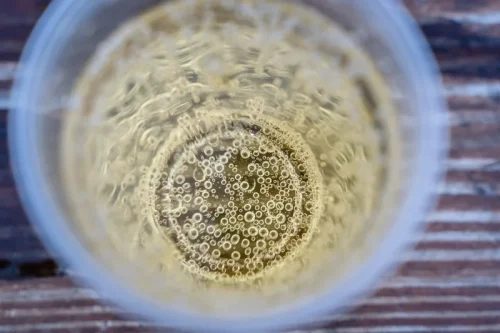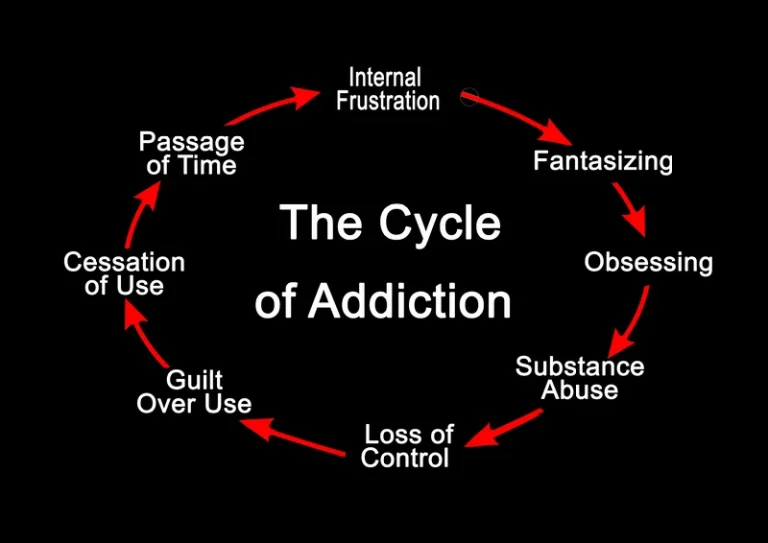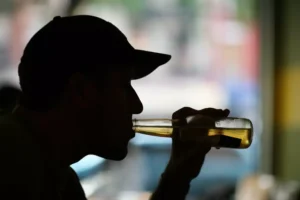Relapse Triggers People, Places & Things Causing Cravings

At the Massachusetts Center for Addiction, we provide personalized, comprehensive treatment programs. We understand that each individual has unique needs, and we offer a variety of treatments, including partial hospitalization programs (PHPs) and intensive outpatient programs (IOPs). It is the culmination of an emotional relapse and a mental relapse. Physical relapses are one of the most challenging stages of relapse to overcome.

Unhealthy Coping Skills: What Feeds Your Triggers

For individuals in recovery, navigating through complex and challenging emotions is a significant part of their journey. Internal triggers can evoke a wide array of emotions, including stress, anxiety, depression, and even trauma, which can increase the risk of relapse. External triggers are easier to identify and manage than internal ones. Substance abuse treatment aims to help individuals recognize the early warning signs of relapse and develop healthy coping skills to thwart a potential relapse.
Positive Feelings Trigger Relapses
They help with forming positive social connections and help treat depression and anxiety in combination with other therapies. These practices will allow the individual to focus and keep their mindset on the present moment. When practicing healthy ways to manage triggers, you can detach from any painful or stressful situations that may create triggers.
How Do I Handle Addiction Triggers? (6 Tips)
Certain thoughts, feelings, or situations can bring up uncomfortable PTSD symptoms, such as memories of a traumatic event or feeling on edge and anxious. One way of coping with these symptoms is by increasing your awareness of these triggers. On average more than 85% of individuals are susceptible to relapse in the following year after drug and alcohol treatment.
A Multifaceted Approach: Addressing Internal and External Triggers in Addiction Recovery
Both types of triggers present unique challenges that can derail a recovery process. Understanding how these triggers affect you is vital to avoid potential relapse. One of the most rewarding aspects of recovery is rediscovering your passions and finding new things that bring you joy.
Seeking Help In Recovery
- For someone with a history of trauma, being around anything that reminds them of a traumatic experience can make them feel like they’re experiencing the trauma all over again.
- In this mental health disorder, a person may relive experiences and traumatic events when they hear a specific sound or walk into a room where the trauma occurred.
- The research maintained that subconscious cues are dangerous because they reinforce the patient’s desire to restart using drugs without them being aware of it.
- Talking through the trigger and enlisting someone else’s help can provide you with the motivation and assistance needed to overcome the trigger and stay sober.
The most effective way to address relapse triggers is through a comprehensive approach that addresses both internal and external triggers. Developing coping strategies for emotional factors and skills to navigate environmental triggers is crucial. External relapse triggers come from the “outside,” meaning people, places and situations. When you encounter these factors, they can cause you to crave drugs or alcohol. The best way to avoid these triggers is by creating a structured routine that keeps you busy without feeling stressed.
- But with the right support and resources, individuals can effectively navigate these challenges and continue on their path to recovery.
- Rather than try to address each individual one, a helpful strategy may be to develop healthy ways of dealing with stress in general.
- You may want to let your loved ones know what you’re going through and how you plan on coping.
- Being able to identify triggers and implement healthy ways to manage them will be critical skills for your recovery journey.
- Having people to relate to and share your story with can make all the difference.
What are Common Relapse Triggers?

The National Institute on Drug Abuse (NIDA) reports that 40 to 60 percent of people treated for substance use disorders relapse. Relapse triggers are events, situations, or emotions that can lead to a strong desire to seek out drugs and alcohol again, potentially resulting in alcohol abuse. These addiction relapse triggers can vary from person to person and can be incredibly powerful, external triggers leading to an increased risk of addiction relapse. Alcohol and drug addiction triggers are stimuli that remind you of your past drug or alcohol use and encourage those deep cravings. They can be social triggers, environmental triggers or emotional situations. A significant amount of people struggling with substance abuse find it difficult to resist relapse triggers.
Avoiding recurrence of misuse

Your therapist can help you determine the best practices for managing your triggers. Mental health and addiction relapse triggers can be internal, such as emotion-based triggers, and external, such as those brought on by sights, smells and locations. When asking what are triggers in addiction, you also have to consider the triggers that impact mental health. These are internal or external experiences that remind you of mental health trauma or breakdowns.

Seek Help for Addiction Triggers from FHE Health
When feeling bored, individuals may be more likely to seek out activities or substances that provide temporary relief or excitement, leading to a return to addictive behaviors. Here are the top 10 common relapse triggers you might encounter during your recovery journey. Understanding these triggers can help you stay motivated and on track with your recovery goals, ultimately leading to a healthier, happier life. When triggered, emotions like anger, guilt, and irritability arise along with a decline in self-esteem, paving the way for various unhealthy behaviors. Some might even be traumatizing enough to provoke harmful coping mechanisms, including self-harm, harming others, and substance abuse as well.

Comment (1)
Your code of destiny
I am really impressed with your writing skills as neatly as with the format on your weblog. Is this a paid subject or did you customize it your self? Anyway stay up the excellent quality writing, it is uncommon to look a great weblog like this one nowadays!